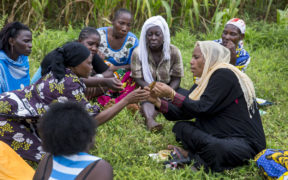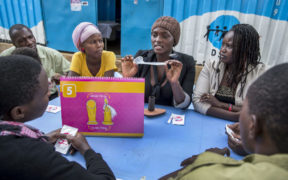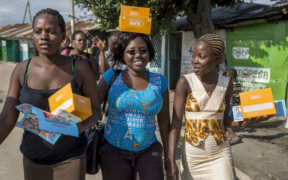Author:
Levis Onsase

Though discussions around reproductive health services should be open to all, adolescent boys and girls experience often don’t get to take part in them, with their parents and guardians making most decisions about health on their behalf. Kenya’s health department is implementing various interventions focusing on young people. Through The Challenge Initiative’s (TCI) program, Mombasa County received funding to implement high-impact interventions that address some of the challenges young people experience in accessing contraception and other sexual and reproductive health (SRH) services.

In Mombasa County, Kenya the Sisi Kwa Sisi program supports local governments to scale up high-impact best practices in family planning. The innovative peer-to-peer learning strategy uses counterpart coaching and mentoring to impart workplace knowledge and skill.

Pharmacies play a critical role in providing access to reproductive health services in low-resource settings in Kenya. Without this private-sector resource, the country would not be able to meet the needs of its young people. Kenya’s National Family Planning Guidelines for Service Providers allow pharmacists and pharmaceutical technologists to counsel, dispense, and provide condoms, pills, and injectables. This access is critical to the health and well-being of youths and the overall achievement of the United Nations’ 2030 Agenda for Sustainable Development goals.













